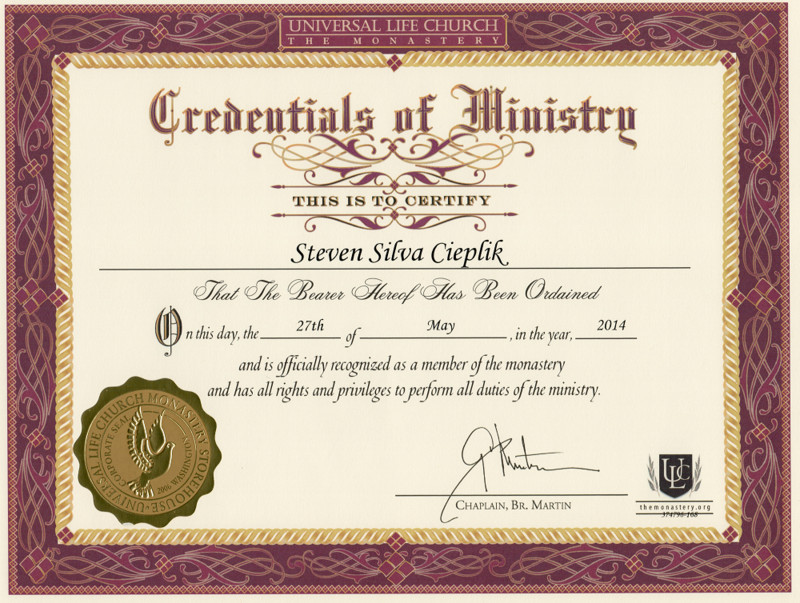
Online ordinations come in a variety of forms and practices that are increasingly competing with organized religion writes Michel Clasquin-Johnson in the Journal for the Study of Religions and Ideologies (Winter). The Universal Life Church (ULC) runs the oldest and most popular online ordination service and mainly focuses on providing alternative wedding officiants instead of traditional clergy, but others take their mission to certify clergy with some degree of theological seriousness (see February 2015 RW for more on the ULC). Clasquin-Johnson found 36 websites where one could apply for ordination, with most operating in the U.S., Canada, and Great Britain. The ULC, which has ordained and married upwards of 10 million people, is the most non-sectarian, allowing for secular services, but it also permits other non-conventional religions to offer online ordinations, including Satanist and New Age/Esoteric groups, with officiants using such titles as priest, shaman, Reiki healer, rabbi, and interfaith chaplain. Even Judaism has seen an influx of rabbis ordained by a non-traditional institution. Three Soto Zen priests were recently ordained in an online ceremony.
Clasquin-Johnson finds that there are different levels of religious and theological commitment among these groups. Beyond the non-creedal ULC, which grants ordinations with no requirements, the second largest group, American Marriage Ministries, requires an affirmation of legal and ethical guidelines. Arke Ministries Organization International only requires that its ordained are Christian, with no doctrinal guidelines, but the Ministers-Best-Friend reserves its ordination for those deemed sufficiently evangelical Christian and requires an agreement not to participate in same-sex marriages. A few online ordination groups even include training and the granting of degrees, Clasquin-Johnson adds, although no mainline churches or academic accreditation agencies recognize these degrees. Most of these ministries are united by a belief that marriage is a sacred union while insisting that every couple has the right to choose how they will observe it. Far from marriage being secularized, Clasquin-Johnson argues that the phenomenon points to a “constant, or possibly increasing, need for a religious element in the lives of what may be otherwise largely secular people.” But it also means that religion now “finds itself in an open, competitive market, and it will increasingly have to defend its role rather than taking it for granted. Certainly, we see no action by any established religion to compete with the online ordainers directly.”
(Journal for the Study of Religions and Ideologies, http://jsri.ro/ojs/index.php/jsri)
